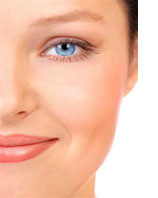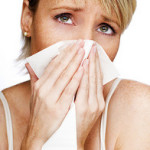Acne Solution – Treat the Gut, Treat the Liver
 Over 17 million people in the United States struggle with acne. It is one of the most common health conditions that I see in my practice. Acne vulgaris is a skin condition characterized by scaly red skin, blackheads and whiteheads, papules, pustules, nodules, increased oil production and often scarring. Acne occurs most commonly in adolescence and often continues into adulthood. Standard prescriptions for acne include antibiotics, birth control pills, retinoids, topical creams, and others. Often these medications have side effects such as yeast infections, digestive issues, liver toxicity, scarring and changing the pigmentation of the skin.
Over 17 million people in the United States struggle with acne. It is one of the most common health conditions that I see in my practice. Acne vulgaris is a skin condition characterized by scaly red skin, blackheads and whiteheads, papules, pustules, nodules, increased oil production and often scarring. Acne occurs most commonly in adolescence and often continues into adulthood. Standard prescriptions for acne include antibiotics, birth control pills, retinoids, topical creams, and others. Often these medications have side effects such as yeast infections, digestive issues, liver toxicity, scarring and changing the pigmentation of the skin.
Although the symptoms of acne appear on the skin, the underlying imbalance lies far beneath the surface. It has been said that the skin is a window to the gut and the liver. Diet and digestive health, genetics, hormones and liver function all play an important role in addressing acne.
From a naturopathic perspective, healing acne requires getting to the root cause of disease. In most cases this means optimizing the health of the gut and improving the function of the liver.
The Skin-Gut Connection
According to Chris Kresser, L.Ac, the popular health writer and author of the Health Skeptic, there is substantial research supporting the connection between skin conditions and digestive health. In his blog article entitled, The Gut-Skin Connection: How Altered Gut Function Affects The Skin, he talks about the research linking skin conditions to the bacteria that live in our digestive tract.
“Epidemiological evidence shows a clear association between gut problems and skin disorders. A recent report indicated that small intestine bacterial overgrowth (SIBO), a condition involving inappropriate growth of bacteria in the small intestine, is 10 times more prevalent in people with acne rosacea than in healthy controls, and that correction of SIBO in these individuals led to marked clinical improvement. (1) 14% of patients with ulcerative colitis and 24% of patients with Crohn’s disease have skin manifestations. Celiac disease also has cutaneous manifestations, such as dermatitis herpetiformis, which occurs in 1/4 of celiac sufferers. Celiacs also have increased frequency of oral mucosal lesions, alopecia and vitiligo. (2)”
In order to fully heal the skin one must take a closer look at their diet and digestive health. Food allergies, leaky gut syndrome and bacterial imbalance in the gut, also known as dysbiosis, can play a major role in creating inflammation in the skin. Probiotics are essential for restoring the appropriate bacterial flora in the gut, and can also help heal the mucosal barriers both in the gut and the skin. Kresser sites some of this research about the benefits of probiotics to treat skin conditions.
“Oral probiotics have been shown to decrease lipopolysaccharide, improve intestinal barrier function and reduce inflammation. The first formal case report series on the value of using lactobacilli to treat skin conditions was published in 1961 by a doctor named Robert Siver. He followed 300 patients who were given a commercially available probiotic and found that 80 percent of those with acne had some clinical improvement. 3 In a more recent Italian study involving 40 patients, Lactobacillus acidophilus and Bifidobacterium bifidum in addition to standard care led to better clinical outcomes than standard care alone. (9) And another recent study of 56 patients with acne showed that the consumption of a Lactobacillus fermented dairy beverage improved clinical aspects of acne over a 12-week period. (10)”
Detoxify the skin = detoxify the liver
Our skin is actually the body’s largest organ of elimination and detoxification. Sweating is the way that we detoxify through the skin. Every day our bodies eliminate large amounts of waste products through the kidneys, the intestines, the lungs and the skin. The liver is the other primary organ responsible for detoxification. The liver filters and detoxifies cholesterol, fats, hormones, drugs, caffeine, alcohol, and other toxic bi-products in the body. When the liver is overloaded with too much hormone such as androgens or estrogens, too much alcohol or caffeine, or inflammatory bi-products from food the resulting overload can result in skin conditions such as acne, eczema, psoriasis and rosacea.
You can improve the health of your liver by reducing the intake of coffee, alcohol, fried foods and drugs. Foods that can help improve liver function include beets, artichokes, all dark leafy green vegetables including kale, swiss chard, spinach, and garlic and onions. Nutrients such as b vitamins, antioxidants like glutathione, n-acetyl-cysteine (NAC), liver-specific herbs like milk thistle, dandelion, burdock, and using caster oil packs topically over the liver can also help with liver detoxification. By helping the liver detoxify you can simultaneously detoxify and clear the skin.
Start Healing Your Skin Naturally Today!
At Boulder Natural Health, our approach to healing acne is focused on addressing the underlying cause of your symptoms. We offer food allergy testing, gastrointestinal health panels, dietary and lifestyle counseling, and provide the highest quality supplements to help restore your health. If you have additional questions about our approach to care, call us today at 303-960-3920 and schedule a free 15 minute phone consultation.




